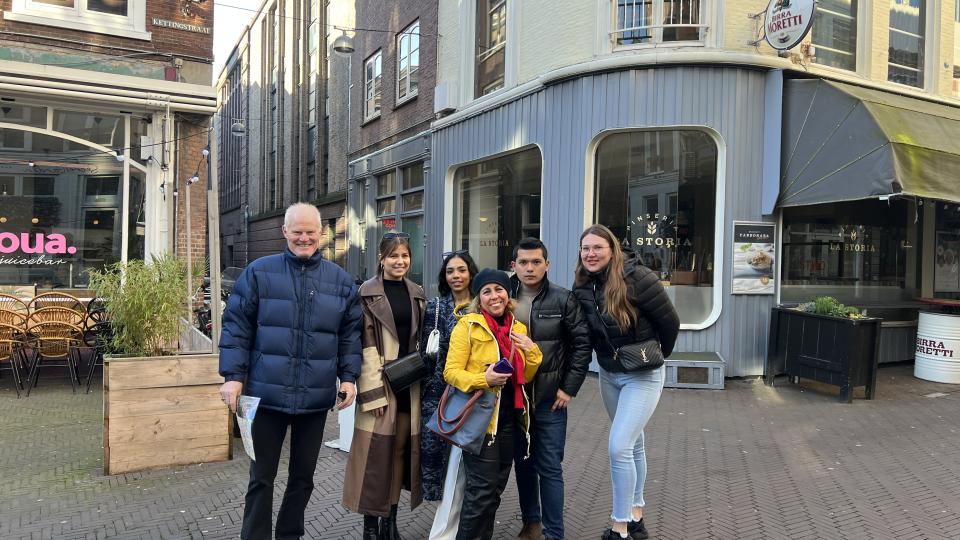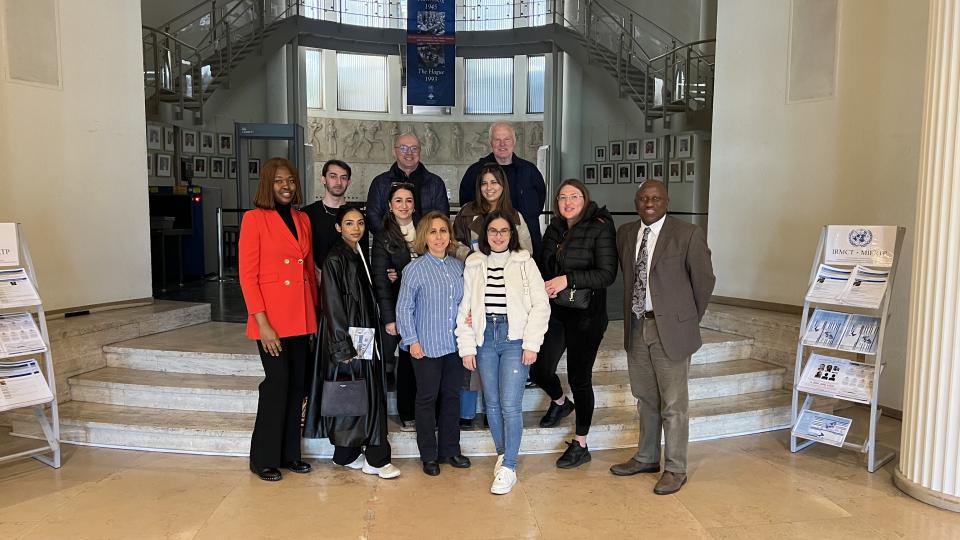
Law students get the opportunity to see international courts in action in The Hague
Intro
Nine students at UWL’s School of Law recently had the opportunity to visit international courts in The Hague. They were accompanied by the Head of School Philip Ells and Senior Lecturer Michael Derks.
Article body
After experiencing the canals, museums and striking 17th century and ultra-modern architecture of Amsterdam, the students visited the impressive ‘Peace Palace’ in The Hague, which houses the International Court of Justice and the Permanent Court of Arbitration.
The group visited the International Criminal Court where they heard about its mandate, its operational abilities, and some of the political issues engaged in seeking justice against alleged perpetrators of crimes against humanity, genocide, war crimes and crimes of aggression.
Philip Ells, head of UWL's School of Law, said of the visit:
This was a unique opportunity for students to learn from court staff and prosecutors about the work of these highly specialised, international courts.”
Article body
Students had the privilege to observe part of the trial of Ali Muhammad Ali Abd-Al-Rahman, the alleged leader of the Militia/Janjaweed in Darfur, Sudan, at the time of warrant in 2007. He is suspected of 31 counts of war crimes and crimes against humanity. Both Defence and Prosecution counsel engaged in legal and evidential argument concerning his alleged knowledge of systematic rapes by militia solders.
Article body
On their final day in The Hague, students visited the Residual Special Court for Sierra Leone, established to oversee witness protection, supervision of prison sentences and management of archives. It is the first international court to be funded by voluntary contributions and to complete its mandate and transition to a residual mechanism.
The Prosecution Legal/Evidence Adviser and Associate Legal Adviser gave a highly informative talk and question-and-answer session about the work of the former court personnel within Sierra Leone, the gathering of evidence, the process of establishing the court, the vast array of personnel engaged in its creation, maintenance and record keeping and the successful prosecution of perpetrators of crimes.
article body
This trip enabled students to put their own studies in perspective.”
said Philip Ells.
It was a chance to be informed of the possibilities of international work in the future, and of internships offered by the International Criminal Court.”
Sarah Ali Alabood, a student at the School of Law, said:
The trip was great fun, and definitely an unforgettable university experience. We enjoyed every moment and would love to do it again."
- The courses at UWL’s School of Law have a distinctive focus on law in action. Read more on the school website.
Related news
-
Law students gain valuable insight on visit to Sky HQ
Law students from the University of West London (UWL) have been given the inside scoop on what it is like to work in media law following a visit to the Headquarters of Sky Television in Isleworth.
-
Law students look back on studies in UWL graduation ceremony
The next generation of legal experts have joined celebrations at Twickenham Stadium today for the first in-person graduation from UWL since the outbreak of Covid-19.




